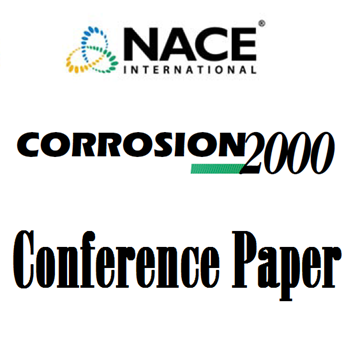Search
99154 HYDRIDE FORMATION AND GROWTH IN GRADE 2 TITANIUM IN 3,5%NACL SOLUTION
Also Purchased
09078 Experience with Titanium Alloys for Oil and Gas Service
Product Number:
51300-09078-SG
ISBN:
09078 2009 CP
Publication Date:
2009
$20.00
98269 HYDROGEN EMBRITTLEMENT OF GRADE 2 AND GRADE 3 TITANIUM IN 6%NaCl SOLUTION
Product Number:
51300-98269-SG
ISBN:
98269 1998 CP
$20.00
00691 EXPERIENCE WITH TITANIUM HEAT EXCHANGERS IN REFINERY SERVICES
Product Number:
51300-00691-SG
ISBN:
00691 2000 CP
Publication Date:
2000
$20.00




